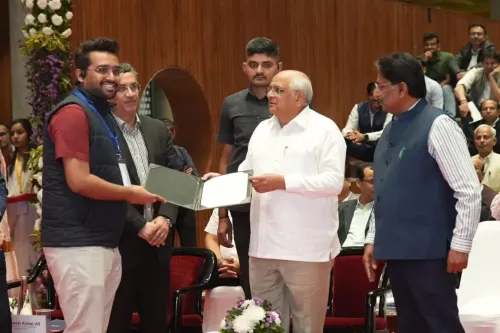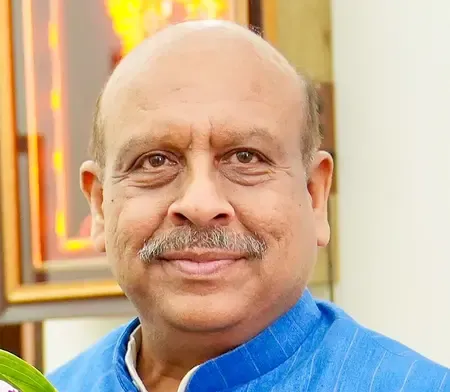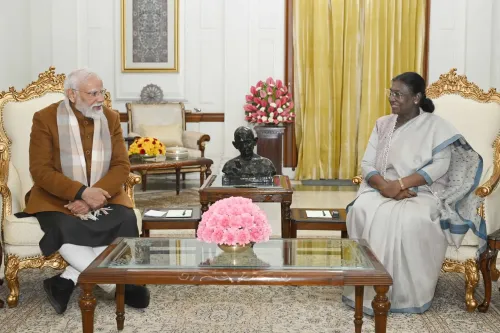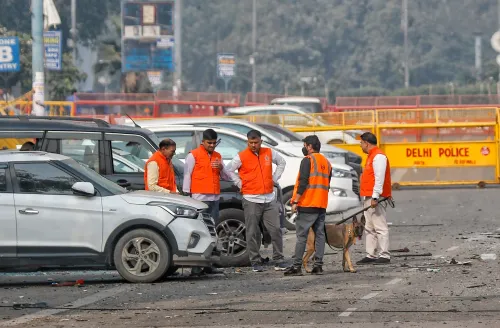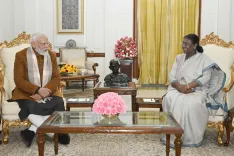Are Pakistan-Afghanistan Relations Deteriorating?

Synopsis
Key Takeaways
- Pakistan and Afghanistan relations are complex and influenced by historical ties.
- Ethnic identities significantly affect political narratives.
- The 2021 meeting between Faiz Hameed and Taliban leaders is pivotal.
- Strategic miscalculations have led to increased tensions.
- Future relations depend on dialogue and addressing grievances.
New Delhi, Nov 8 (NationPress) Are the deteriorating relations between Pakistan and Afghanistan merely a storm in a teacup? Recent comments emerging from Islamabad seem to suggest so.
In August 2021, shortly after the Taliban seized control of Kabul, a widely circulated photograph depicted then-Inter-Services Intelligence (ISI) chief Lieutenant General (Retd) Faiz Hameed enjoying tea with senior Taliban leaders in the Afghan capital. At that time, Imran Khan served as the Prime Minister of Pakistan.
This image quickly became a symbolic representation of Islamabad’s swift engagement with the new rulers in Kabul, marking the culmination of longstanding ties between Pakistan’s security establishment and the Taliban leadership.
The visual was politically charged; for some, it signaled successful diplomatic outreach, while others perceived it as a hasty handshake that could lead to unforeseen repercussions.
Reflecting on this situation, Pakistan's Deputy Prime Minister Ishaq Dar recently attributed the deteriorating ties with Afghanistan to the policies of the Imran Khan-led Pakistan Tehreek-e-Insaf (PTI) government, according to reports.
In a recent address to the Senate, Dar, who also holds the position of Foreign Minister, suggested that the “cup of tea” in Kabul had proven detrimental for Islamabad.
Other high-ranking government officials, including Defence Minister Khwaja Asif and spokespeople from Pakistan's ruling party, have echoed concerns that Hameed's 2021 meeting in Kabul was a strategic miscalculation.
This issue has now transformed into an ethnic narrative, illustrating a local context where Pakistan's Punjabi-dominated political leadership and military elite face off against a Pashtun Taliban, with Imran Khan’s Pashtun ancestry cited as a sign of his alignment with Pashtun militants.
Such ethnic identities have significant political implications and have influenced perceptions in Pakistan. They play a vital role in molding narratives, including those surrounding Imran Khan, and are now viewed as contributing factors to Islamabad’s current discord with the Afghan Taliban.
However, this cannot be seen as the sole, or even primary, reason for the rift between Islamabad and the Afghan Taliban.
Pakistan's association with Afghan militant factions has historically been transactional and state-driven. During the Soviet invasion, the ISI established the Mujaheddin militia, with covert support from the US Central Intelligence Agency (CIA).
The Taliban and the TTP are believed to be their offshoots. Following the Soviet era, Pakistan's security establishment backed the Afghan Taliban as a strategic shortcut to exert influence in Kabul and counter regional competitors.
After 9/11 and the death of Osama bin Laden on its soil, Pakistan publicly adjusted its stance under international scrutiny but continued to maintain ties with Afghan actors for strategic depth, intelligence advantages, and cross-border influence.
The fall of Kabul in August 2021 re-ignited old dilemmas—should Islamabad normalize relations with the Afghan Taliban, or utilize military might to compel Kabul to suppress anti-Pakistan groups like the Tehreek-e-Taliban Pakistan (TTP) and Balochistan Liberation Army (BLA), among others?
Officials in Pakistan report a surge in militants crossing the border and an increase in cross-border attacks since 2021, citing data and incidents that have fueled a sense of strategic regret concerning early outreach.
In this context, the image of a senior Pakistani intelligence officer casually meeting with Taliban leaders has been re-evaluated—not as diplomatic pragmatism, but as the moment Pakistan allegedly relinquished leverage it might need to control militant movement and sanctuaries.
For many critics of the Imran Khan administration, Faiz Hameed's visit symbolizes a strategic decision made by security elements that prioritized rapid engagement with the new Afghan regime, seemingly without adequate precautions to avert militant spillover.
This led to conflicting narratives, with one framing the visit as a misjudged opening that jeopardized Pakistan’s security, while another depicted it as necessary realpolitik, later blamed for repercussions beyond the scope of a single meeting.


